Best Work-Life Balance Books For Optimizing Your Time
Work smart, not hard, as they say. Everyone wants a better work-life balance but it's not easy to achieve, especially in today's "always on" culture. Here are our top 11 books to help improve your work-life balance.

At 4 Day Week, we know that finding a good work-life balance is essential for a happy, productive life. But for many people, it can be difficult to find the right equilibrium.
So if you're looking for some guidance on how to achieve better work-life balance, check out some of these books. Each of them offers its own unique perspective on this important topic.
Let's get started!
What Is Work-Life Balance?
In simple terms, work-life balance is the equilibrium point of a person's work-life interface—the intersection of their work and personal lives. As the theory goes, there are several areas of our work and personal lives that can and frequently do interest with one another, including:
- Health
- Leisure
- Family Commitments
The result is a push-and-pull dynamic where workers are forced to compromise in one area of their lives to succeed in the other. While this isn't always a bad thing, when balanced poorly, it can lead to either personal or professional problems.
Work-life balance is the delicate but crucial balancing act between work and personal life. It's about having a healthy lifestyle, doing what you love, and giving all aspects of your life the proper amount of attention.
Why Is Work-Life Balance Important?
There are several reasons why work-life balance is important:
Health
When you have a healthy work-life balance, you're more likely to make time for exercise, eat healthy meals, and get enough sleep. All of these things contribute to a healthier lifestyle.
Productivity
Work-life balance is important because it can help you be more productive at work. When you have a healthy work-life balance, you're less likely to feel stressed out and overwhelmed by your work.
When you have a healthy work-life balance, you're also less likely to feel stressed out and overwhelmed by your home life. This means that you'll be able to focus more on your home life and get more done.
Personal Relationships
Work-life balance is important for personal relationships because it allows you to have more time for your family and friends. When you have a healthy work-life balance, you're less likely to feel like you're neglecting your personal life.
Best Books for Achieving a Healthy Work-Life Balance
There are a ton of books on work-life balance out there. But which ones are worth reading? In this section, we'll share with you the 15 best work-life balance books for optimizing your time!
Would you like a 4 day work week?
1. The 4-Hour Work Week by Time Ferris
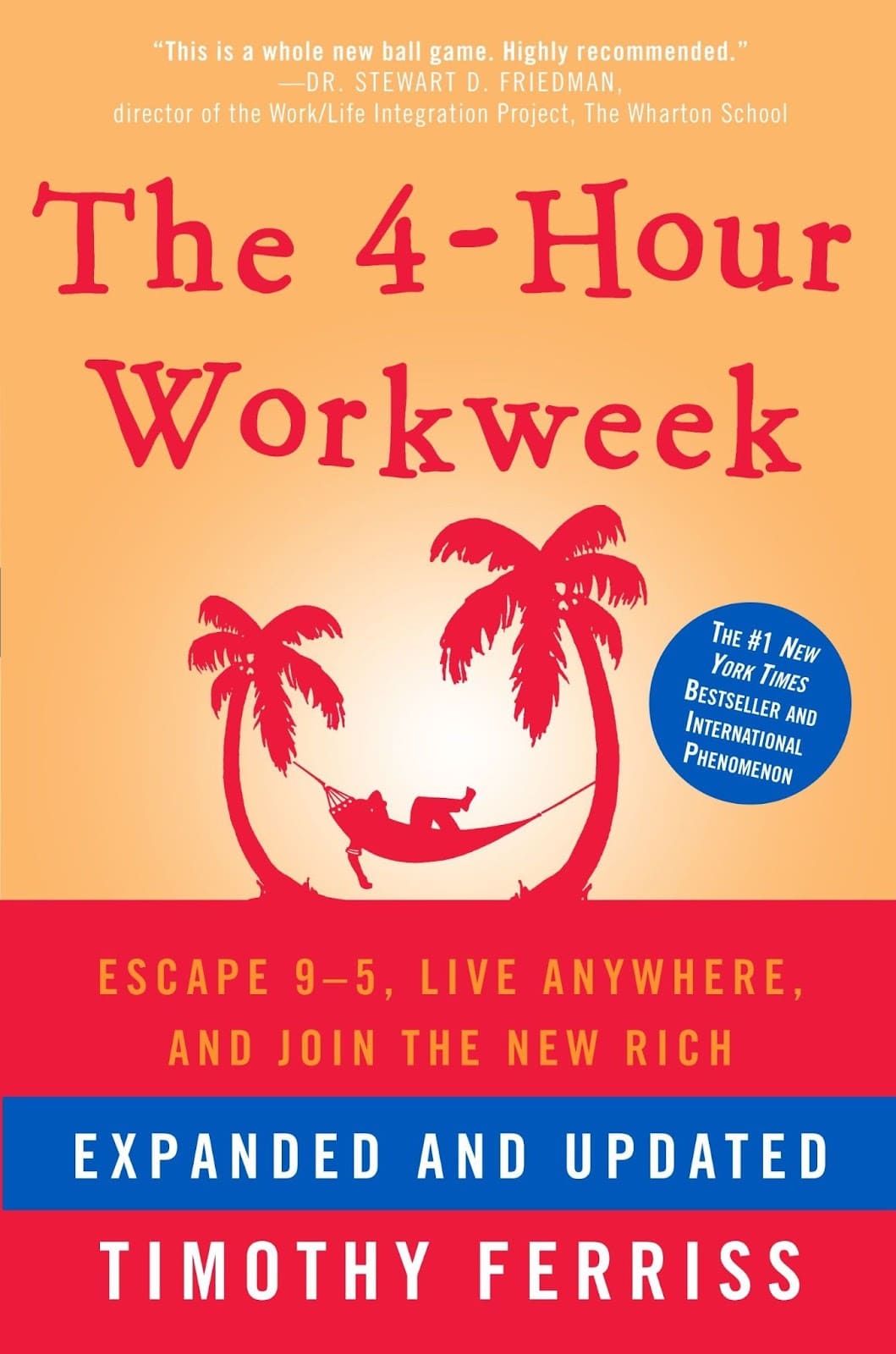
There's a pretty good chance you're already familiar with The 4-Hour Workweek, Tim Ferriss, or both. If you aren't, we highly recommend you pick up a copy.
The 4-Hour Workweek is a book for entrepreneurs. While that is certainly one of the groups who can benefit from it, it also packs in a lot of great, actionable information for anyone hoping to improve their work-life balance.
The central premise of the book is pretty simple: “the perfect job is the one that takes the least time”. In line with that statement, Tim spends a good deal of time covering strategies for getting more done in less time, with the goal of spending more time doing the things you love.
2. It Doesn’t Have to Be Crazy at Work
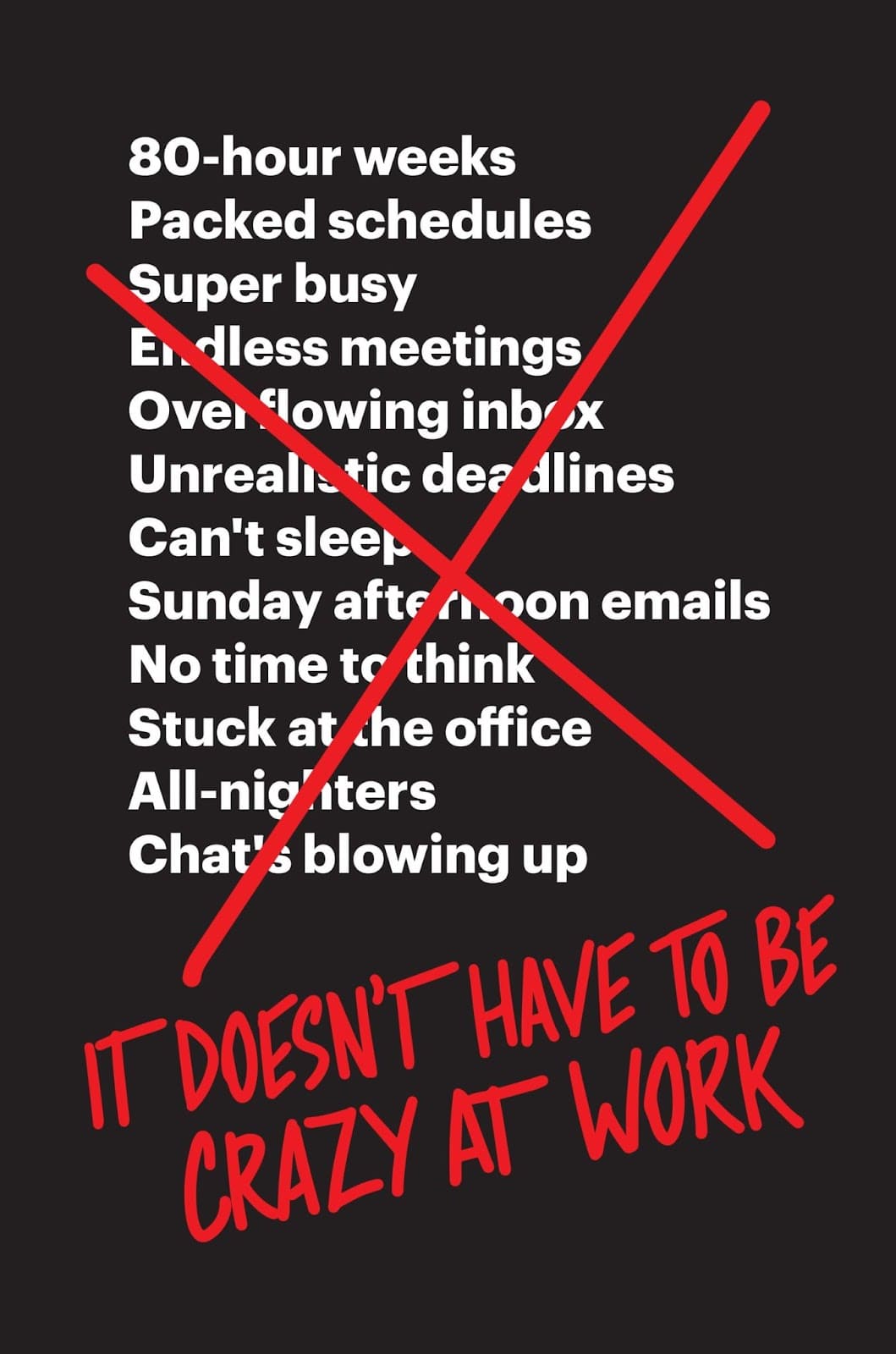
It Doesn't Have to Be Crazy at Work is a great read for any manager, founder, CEO, or leader who's interested in helping their employees foster a healthy work-life balance.
In the book, Basecamp executives David Heinemeier Hansson and Jason Fried team up to counter the "at all costs" mindset they see dominating corporate cultures. The pair offer insights into how they’ve established a calm and productive work environment at their company that benefits employees while supporting their bottom line.
The book is packed with actionable advice, including tips on how to eliminate unnecessary meetings, manage email effectively, and prevent burnout—highly recommended!
3. Getting Things Done by David Allen
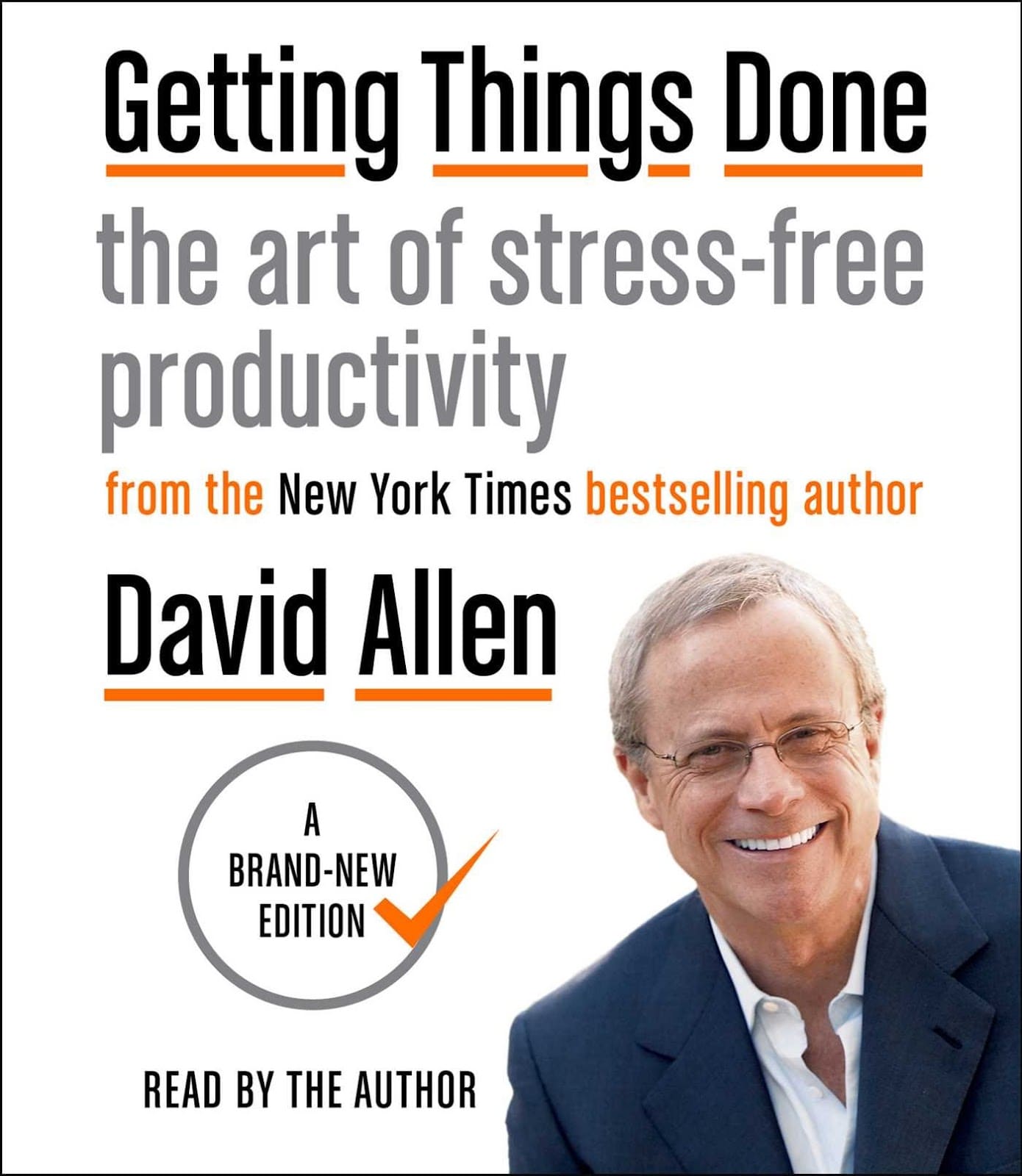
Trying to find a work-life balance can feel like an uphill battle when you're constantly struggling to keep up with your to-do list. If that sounds familiar, you might want to give Getting Things Done by David Allen a read.
The book is all about developing a system for managing your tasks and responsibilities in a way that's both effective and efficient. By following the steps laid out in the book, you'll be able to free up time and energy that can be better spent on the things you enjoy outside of work.
While it may not be the most exciting book on our list, it's definitely one of the most helpful!
Deep Work by Cal Newport
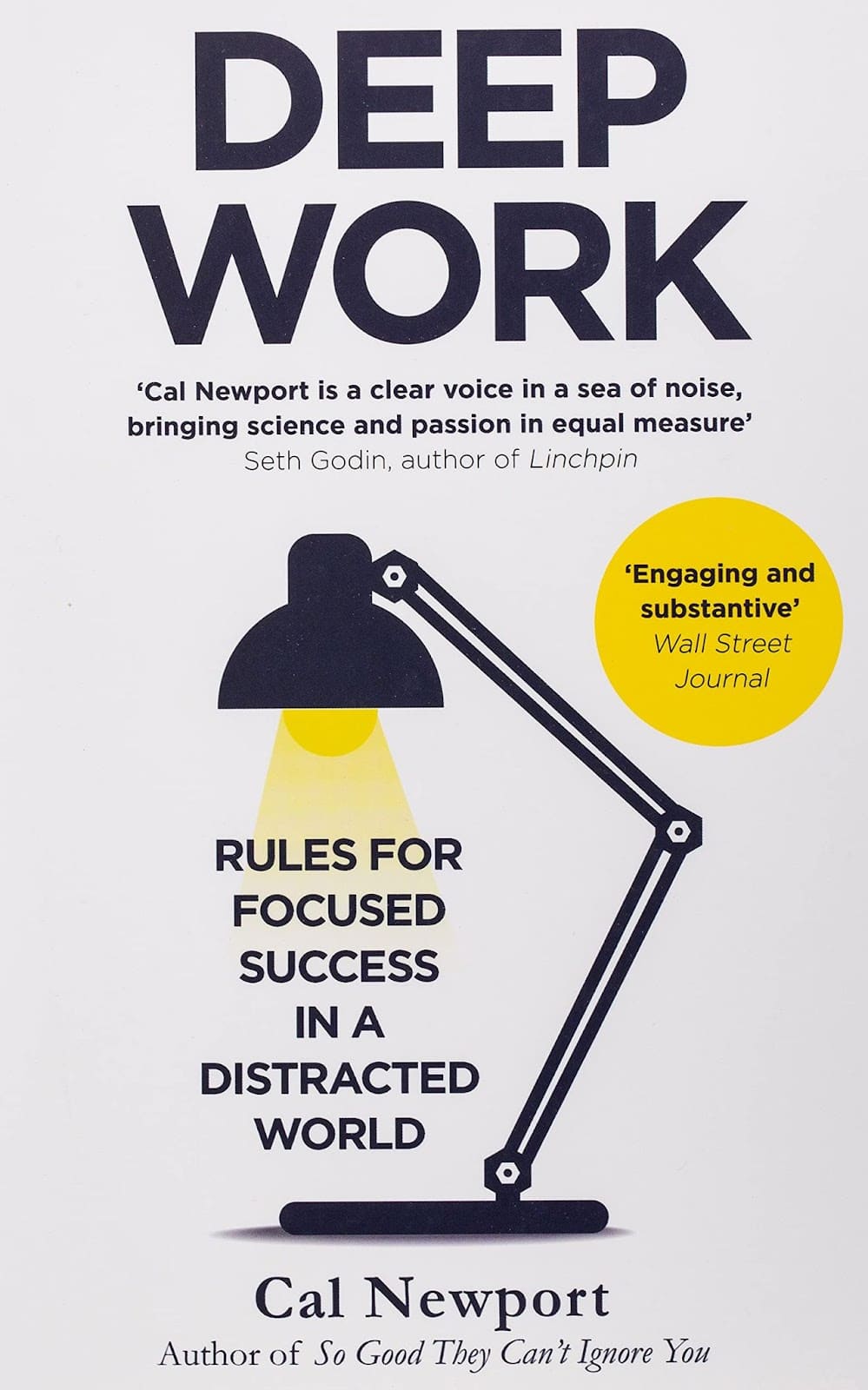
Deep Work is a great book for anyone who's looking to improve their focus and concentration. In the book, author Cal Newport makes a case for why deep work is essential for success in the 21st century.
He also provides readers with practical advice on how to cultivate deep work habits, including tips on how to eliminate distractions, manage time effectively, and more.
If you're looking to boost your productivity and get more done in less time, Deep Work is definitely worth a read.
The Power of Full Engagement by Jim Loehr and Tony Schwartz
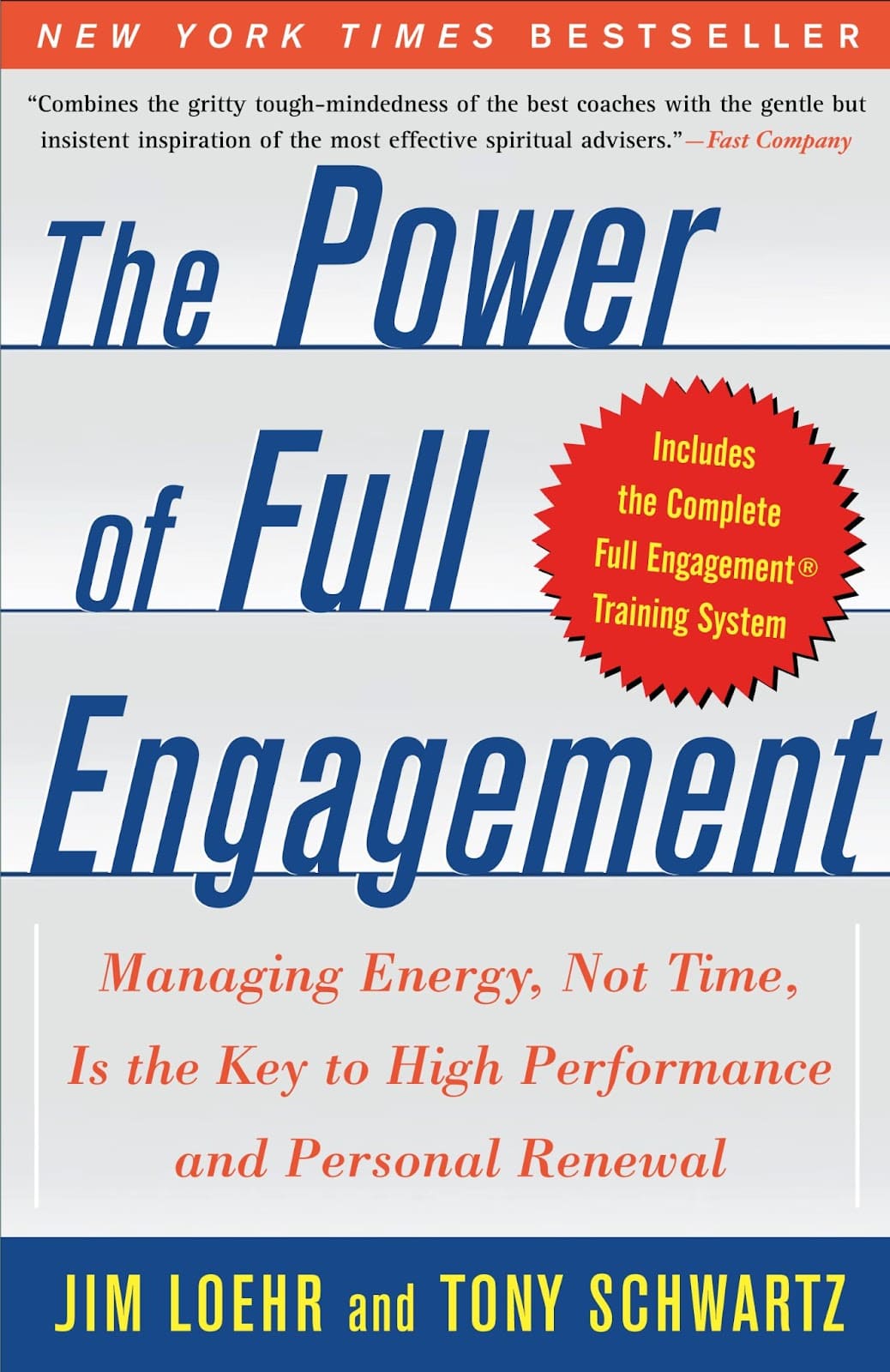
Thinking about work-life balance in terms of engagement rather than detachment is a unique perspective that can be helpful for anyone looking to improve their work-life balance. The Power of Full Engagement offers just that, a different way of thinking about how we approach work and life.
In the book, authors Jim Loehr and Tony Schwartz discuss the importance of energy management in achieving success. They make the case for being fully engaged in whatever it is we're doing, whether it's our job, our hobby, or our family time.
Interestingly enough, the book was written for both professionals and athletes—two groups who need to be able to stay engaged for extended periods of time. However, the concepts presented can easily be adapted to everyday life.
Thrive by Arianna Huffington
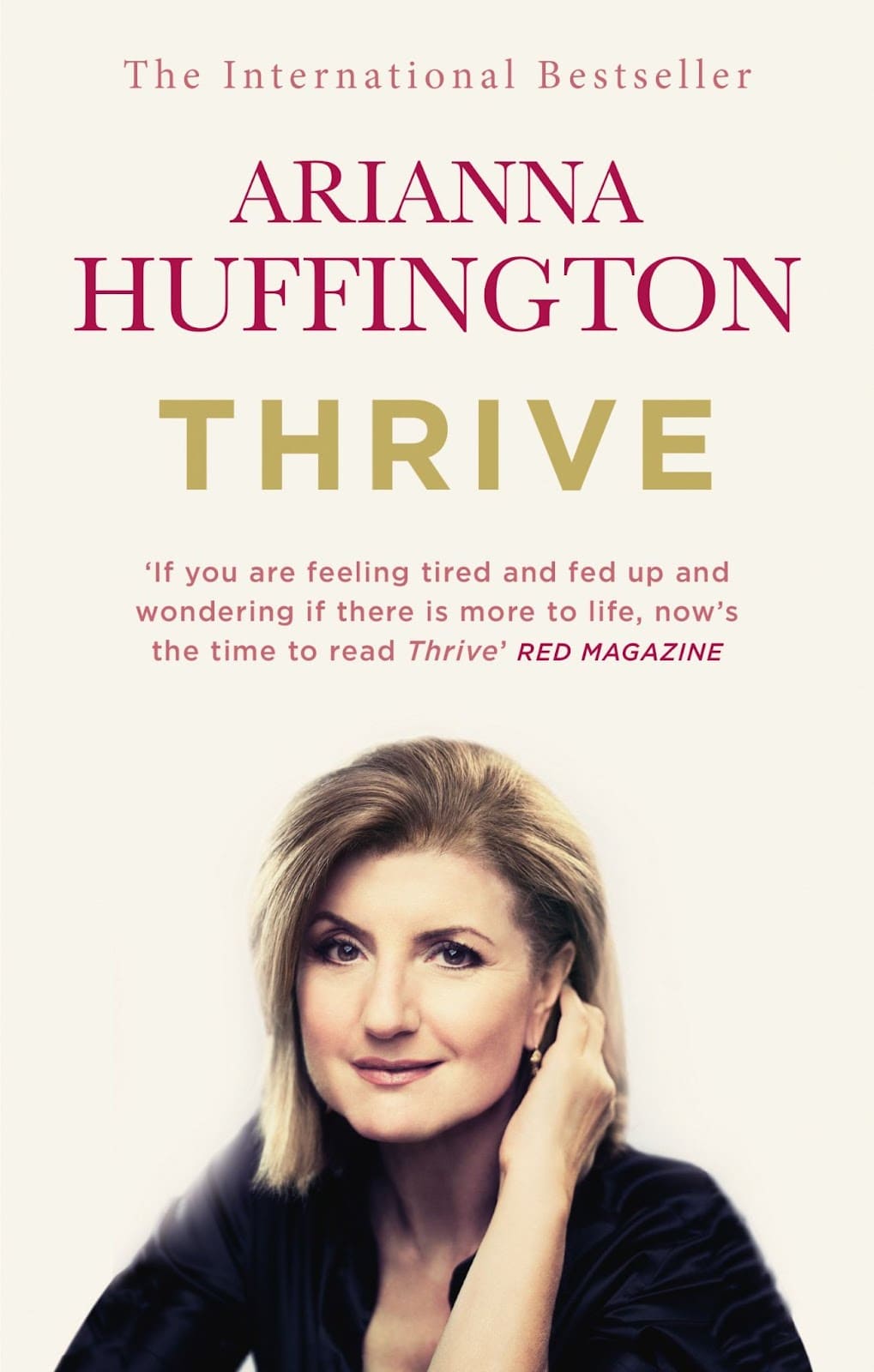
In Thrive, Arianna Huffington discusses the importance of disconnecting from work in order to connect with our other passions in life. Thrive approach is all about creating a sustainable lifestyle that allows us to be our best selves, both professionally and personally.
Arianna makes the case for the importance of sleep, meditation, and time spent away from screens. Thrive isn't just about work-life balance; it's about living a life that's both productive and fulfilling. If that's something you're interested in, then this is a great read for you.
The 5 AM Miracle by Jeff Sanders
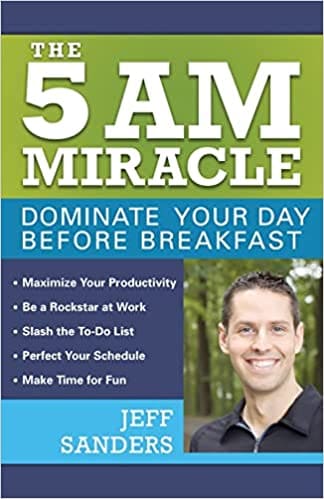
One of the challenges of achieving a healthy work-life balance is finding time for ourselves outside of work. That's where The 5 AM Miracle comes in.
In the book, author Jeff Sanders discusses the importance of early morning productivity and offers tips for getting the most out of your day. He makes a convincing case for waking up early and using that time to focus on your personal goals and priorities.
The Organized Mind by Daniel Levitin
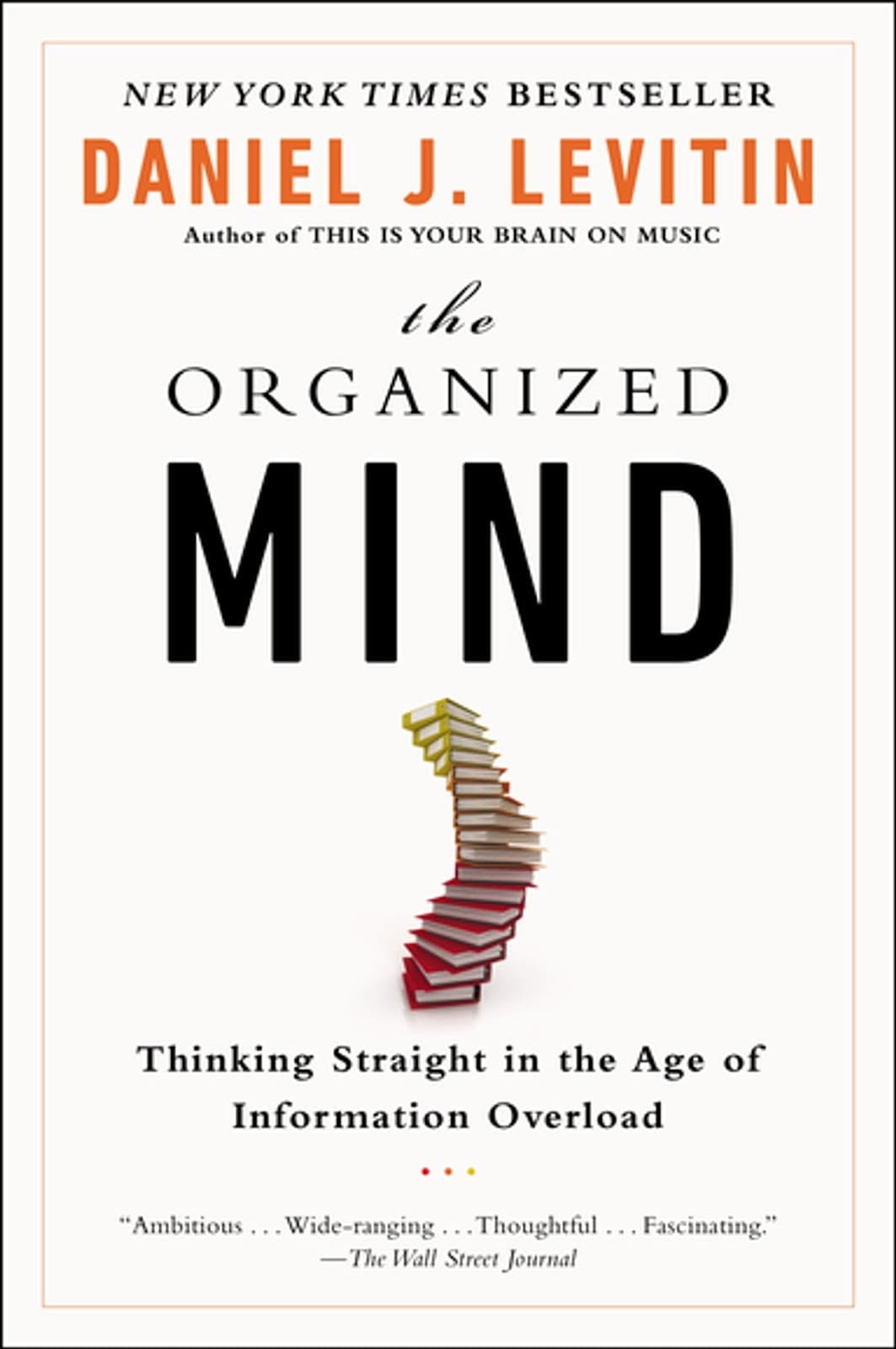
If you're someone who struggles with organization (or if you simply want to be more organized), The Organized Mind is a great read. In it, neuroscientist Daniel Levitin discusses the science behind why we struggle with organization and what we can do to improve.
In the book, he offers tips and tricks for overcoming these challenges and improving our productivity. The book is filled with research-backed advice that—when followed—will leave you feeling like you've gained a few hours every day.
The 80/20 Principle by Richard Koch
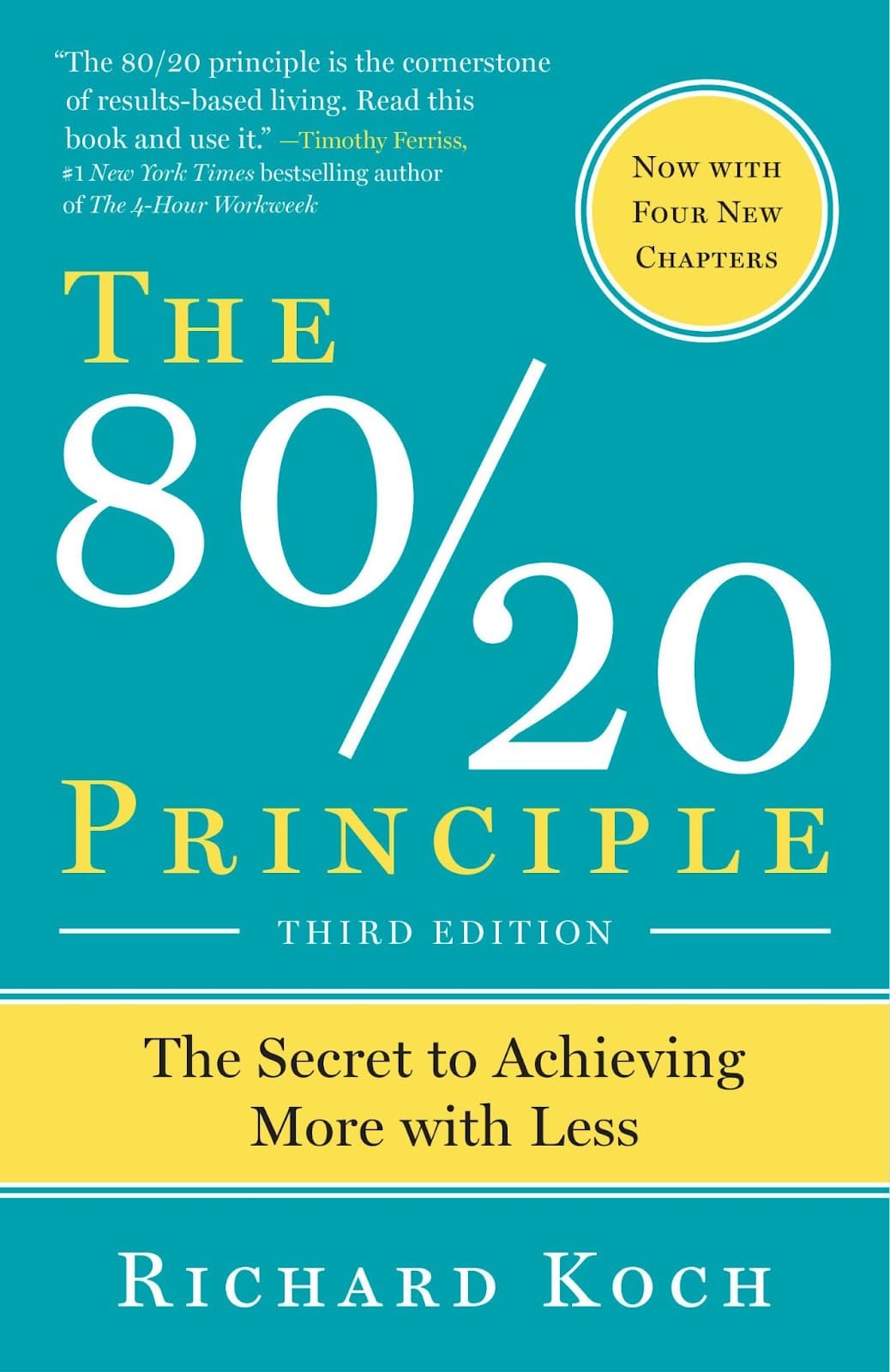
This book by Richard Koch is all about the power of focusing on the 20% of activities that produce 80% of the results. The 80/20 principle is a well-known concept that can be applied to many areas of life, including work-life balance. In short, the principle states that 80% of our results come from 20% of our efforts.
This means that if we want to achieve a healthy work-life balance, we need to focus on the 20% of activities that are going to give us the most results. This may include things like setting limits on how much time we spend working, scheduling regular breaks throughout the day, and saying no to unnecessary commitments.
When applied correctly, the 80/20 principle can be a powerful tool for improving work-life balance.
First Things First by Stephen R Covey
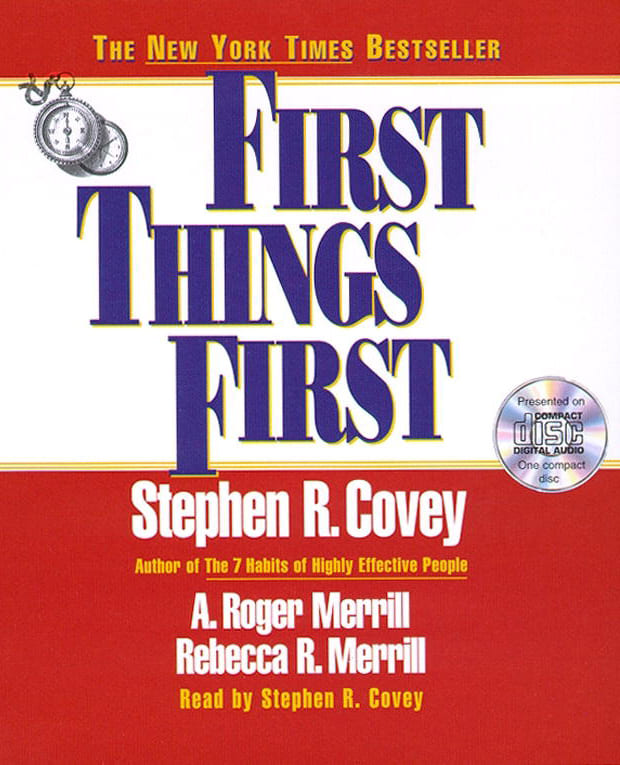
First Things First is another great read for anyone who's looking to improve their work-life balance. The book was written by Stephen Covey, and it discusses the importance of living a life that's based on our priorities.
Covey makes the case for dividing our time into four quadrants, each of which represents a different area of our lives. He then goes on to discuss how we can best manage our time in order to achieve balance in each area.
7 Habits of Highly Effective People by Stephen R Covey
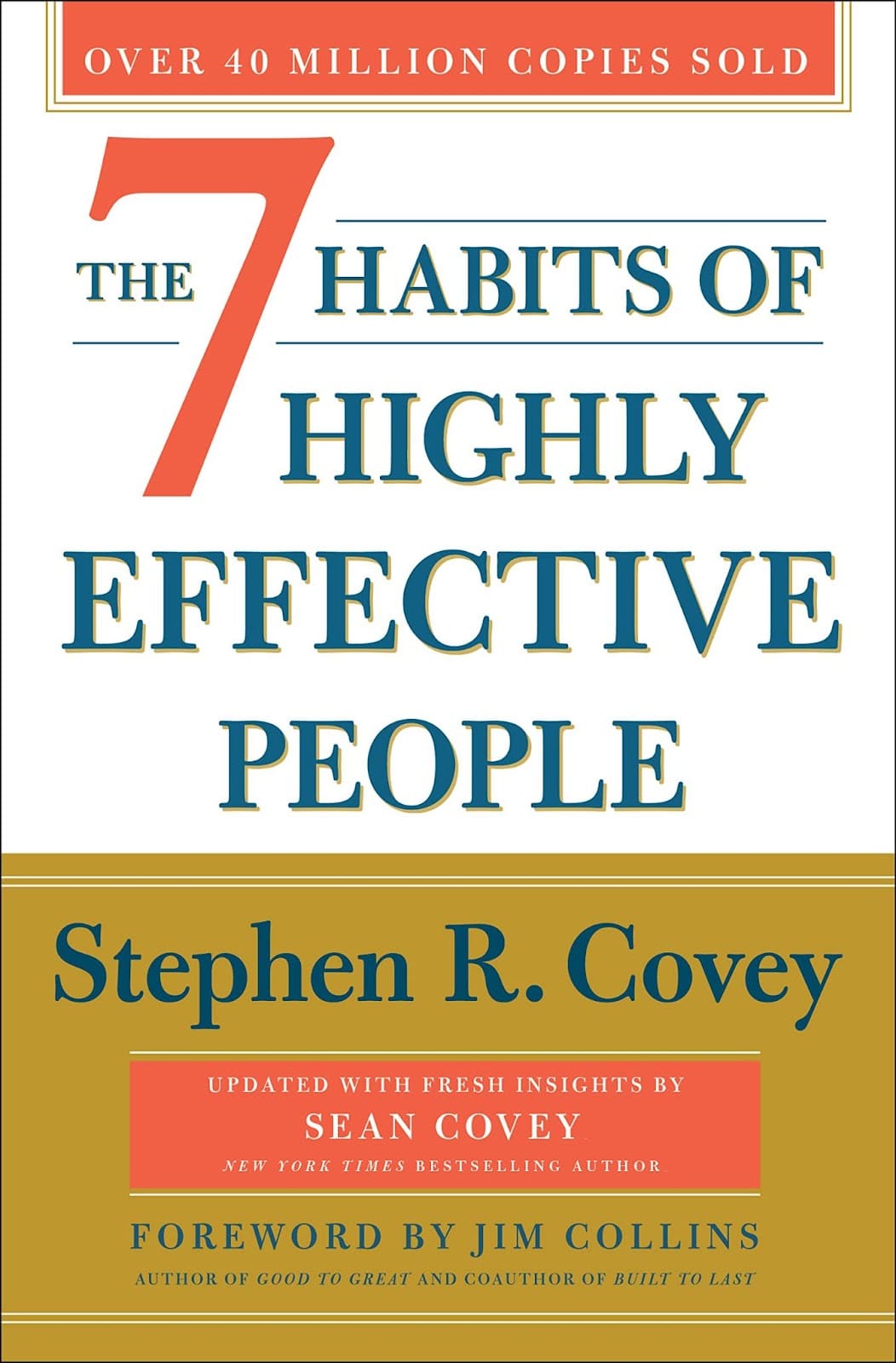
7 Habits of Highly Effective People—also written by Stephen Covey—is a highly influential book about the transformative power of good habits. In it, Covey discusses the seven habits that all successful people share.
While some of these habits—like habit 2: “begin with the end in mind”—aren't directly related to work-life balance, they can indirectly improve our ability to achieve balance. For example, habit 7: “sharpen the saw,” is all about taking care of ourselves so that we can be more effective in other areas of our lives.
And when we're more effective in other areas of our lives, we free up time and energy to focus on achieving a work-life balance.
Improve Your Work-Life Balance Today
The books we've mentioned are a great read for anyone looking to improve their work-life balance; they offer research-backed advice that, when followed, can deliver results.
Often it's not easy to improve your work-life balance, though, especially if you have many responsibilities e.g. kids. Sometimes a big change is required such as making a career switch. Another approach may be to get a job which offers a shorter working week. Thankfully, more companies are offering this benefit.